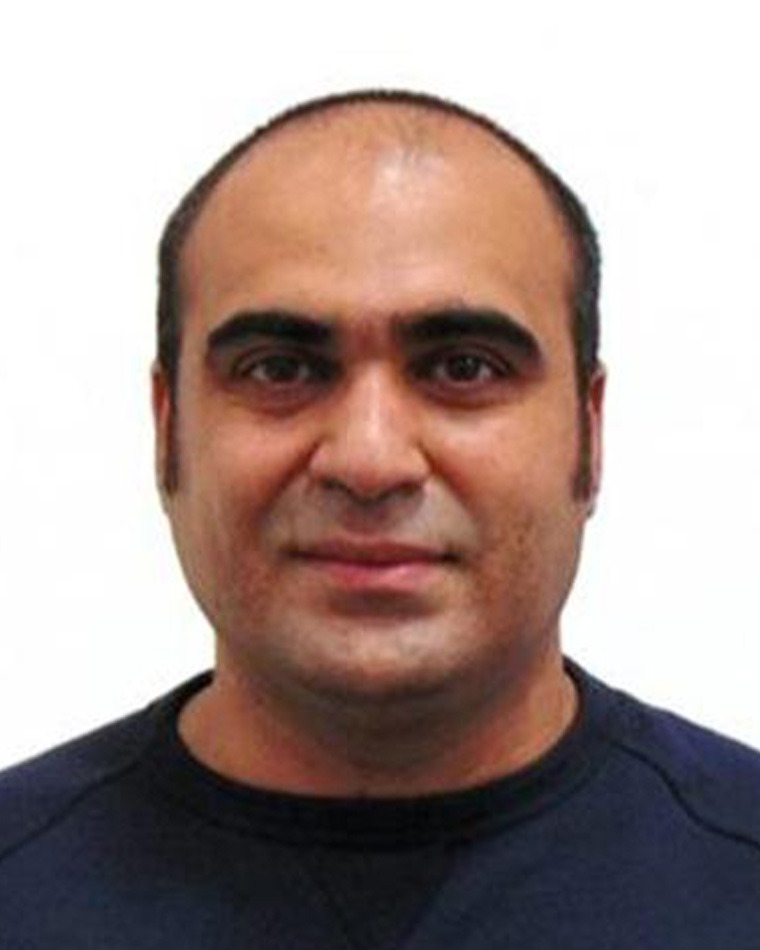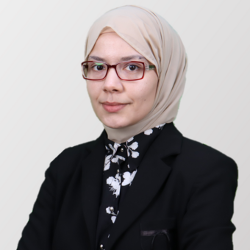Speakers for 2024
Title : Behavioral patterns discovery and analysis: issues and challenges

Prof. Daniela Grigori
Bio: Daniela Grigori is a full Professor of computer science at University Paris Dauphine-PSL since September 2011 and she has been the head of LAMSADE CNRS laboratory the last six years. Her current research interests include process management, data and process analytics, data integration and graph analytics. She has a number of papers in major international conferences and journals and has served as organizer and program committee member in many conferences. She is the co-author of a book on process analytics.
Abstract: Event logs that are recorded by information systems provide a valuable starting point for the analysis of processes in various domains, reaching from healthcare, through logistics, to e-commerce. Specifically, behavioral patterns discovered from an event log enable operational insights, even in scenarios where process execution is rather unstructured and shows a large degree of variability. While such behavioral patterns capture frequently recurring episodes of a process’ behavior, they are not limited to sequential behavior but include notions of concurrency and exclusive choices. However, their discovery requires a high computational effort, and their analysis should be facilitated by a compact visualization and by a methodology helping users to understand correlations between patterns and their context. In this talk we therefore present an approach to efficiently discover contextual behavioral patterns. Moreover, we show how to analyze the discovered contextual behavioral patterns in terms of causal relations between context information and the patterns, as well as correlations between the patterns themselves. We conclude by identifying future research directions.

Title: Data Engineering in IoT
Dr. Richard CHBEIR University Pau & Pays de l’Adour in Anglet France
Abstract: The rise of the Internet of Things has led to an explosion in the amount of data generated by a multitude of connected sensors and devices. Data engineering plays an essential role in meeting the challenges of this new digital era. Data engineering must allow to design robust and scalable architectures to efficiently collect, store, process, and analyze this massive data in real-time. This involves developing secure data flows, implementing appropriate storage solutions, using advanced analytics techniques such as machine learning, and integrating these data with other information sources to obtain valuable insights. The objective is to transform this raw data into actionable information that will optimize processes, enable better decision-making, and provide new experiences to users in the context of the Internet of Things. In this talk, the focus will be mainly put on related data representation, indexing, and pre-processing. Existing solutions addressing these issues will be presented as well as some solutions designed in OpenCEMS research group.
Bio: Richard Chbeir received his PhD in Computer Science from the University of INSA DE LYON-FRANCE in 2001and then his Habilitation degree in 2010 from the University of Bourgogne. He is currently a Full Professor and Head of the Computer Science Department of University Pau & Pays de l’Adour in Anglet France. He is also leading the research groupe OpenCEMS (https://opencems.sigappfr.
Title : Edge AI and 6G
 Dr. Tao Zhang, National Institute of Standards and Technology (NIST) – USA
Dr. Tao Zhang, National Institute of Standards and Technology (NIST) – USA
Bio: Dr. Tao Zhang has been leading research, development, and corporate strategies over 30 years. He is now managing the Transformational Networks and Services Group at the National Institute of Standards and Technology (NIST), leading research in areas including 6G networks, edge and distributed AI, and automated driving. Prior to joining NIST, Tao was the CTO for the Smart Connected Vehicles Business Unit at Cisco Systems, and the Chief Scientist for mobile and vehicular networking at Telcordia Technologies (formerly Bell Communications Research). He holds over 60 US patents, co-authored two books on vehicular networks and all-IP (Internet Protocol) mobile networks, and published over 150 technical papers. He served as the CIO and a Board Governor of the IEEE Communications Society and a Distinguished Lecturer of the IEEE Vehicular Technology Society. Dr. Zhang is a Fellow of the IEEE, a Fellow of the Society for Information Reuse and Integration, and a Fellow of the Asia-Pacific Artificial Intelligence Academy. He has been named an “AI 2000 Most Influential Scholar” by AMiner in 2024.
Abstract: As edge computing matures and becomes essential to advanced networks (e.g., 5G and 6G), general computing platforms, and a growing range of applications, the research community and industries have recently moved to the next frontier – edge artificial intelligence (AI). At the same time, a data-driven world is emerging, where networks, systems, and things function and improve themselves automatically based on dynamically available data. Edge AI is expected to be a cornerstone for this new paradigm. This talk will examine, and illustrate with examples, the evolution from edge computing toward edge AI, the potential roles of edge AI in 6G systems, and selected challenges.

Dr. Edward Griffor, National Institute of Standards and Technology (NIST), USA
Bio: Dr. Edward Griffor is the Associate Director for Cyber Physical Systems at the National Institute of Standards and Technology (NIST). Prior to joining NIST, Griffor served as Walter P. Chrysler Technical Fellow, Chair of the Chrysler Technology Council and Chair of The MIT Alliance. He was named NSF/NATO Postdoctoral Fellow in Science and Engineering in 1980. Dr. Griffor holds a Ph.D. in Mathematics from MIT and Habilitation in Mathematics and Engineering from the University of Oslo. Dr. Griffor is adjunct to the Center for Molecular Medicine and Genetics at the Wayne State University School of Medicine, to the Computing Laboratory at McMaster University, and to the Institute for Assured Autonomy at Johns Hopkins University.
In the automotive industry Dr. Griffor led the development of automated driving systems. His books include the Handbook of System Safety and Security, the Handbook of Computability, and the Mathematical Theory of Domains. He has published extensively in professional journals and has given invited presentations to the American Mathematical Society, North American Software Certification Consortium, SAE International, the Federal Reserve Bank and other US government agencies.
Dr. Griffor’s current research combines methods from mathematics, computing foundations and biomedical science to the assurance of CPS and IoT, including the safety and security of autonomous systems. At NIST, Griffor leads research in Automated Driving Systems (ADS), AI Trust Measurement and Autonomous Systems.
Title: Aerial-based Crisis Manager Center

Dr. Hossein Rastgoftar, University of Arizona
Bio: Hossein Rastgoftar is currently an assistant professor in the Aerospace and Mechanical Engineering Department at the University of Arizona. Prior to this, he was an assistant professor of Mechanical Engineering at Villanova University and an adjunct assistant professor at the University of Michigan from 2020 to 2021. He was also an assistant research scientist (2017 to 2020) and a postdoctoral researcher (2015 to 2017) in the Aerospace Engineering Department at the University of Michigan Ann Arbor. He received his Ph.D. in Mechanical Engineering from Drexel University in 2015 and has two MS degrees (one in Mechanical Systems and the other in Solid Mechanics) and a BS degree in Mechanical Engineering-Thermo-Fluids. Rastgoftar’s areas of interest span decision-making under uncertainty, human-robotic interaction, swarm robotics, system autonomy, UAS traffic management, intelligent transportation, formal specification and verification, and finite-state abstraction of dynamical systems.
Abstract: Crisis management (CM) for critical infrastructures, natural disasters such as wildfires and hurricanes, terrorist actions, or civil unrest requires high speed communications and connectivity, and access to high performance computational resources to deliver timely dynamic responses to the crisis being managed by different first responders. CM systems should detect, recognize, and disseminate huge amounts of heterogeneous dynamic events that operate at different speeds and formats.
Furthermore, the processing of crisis events and the development of real-time responses are major research challenges when the communications and computational resources needed by CM stakeholders are not available or severely degraded by the crisis. The main goal of the research presented in this paper is to utilize Unmanned Autonomous Systems (UAS) to provide Aerial-based Crisis Management Center (ACMC) that will provide the required communications services and the computational resources that are critically needed by first responders. In this new approach to develop an ACMC architecture, we utilize a set of
flexible Unmanned Aerial Systems (UAS) that can be dynamically composed to meet the communications and computational requirements of CM tasks. The ACMC services will be modeled as a deep neural network (DNN) mass transport approach to cover a distributed target in a decentralized manner. This is indeed a new decentralized coverage approach with time-varying communication weights.
Industrial Keynote

Imen Jendoubi, INSTADEEP, Tunisia
Title: Leveraging Machine Learning for Sustainable Urban Energy Solutions: Perspectives and Challenges
Bio: Dr. Imen is an AI Research Engineer in InstaDeep. Her mission is to develop novel algorithms and research ideas in the AI field. She obtained her doctor’s degree in Electrical and computer engineering from McGill university by contributing to integrating reinforcement learning into the energy management and planning field. Imen is also a Machine learning lecturer in a university.
Talk abstract:
